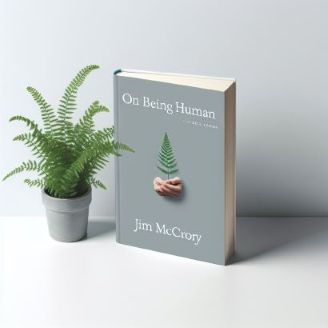“When a man stops believing in God he doesn't then believe in nothing, he believes in anything.”
—G.K. Chesterton

Image generated with the assistance of Microsoft Copilot
“What were we doing when we unchained this earth from its sun?”
A madman rushes into the marketplace in broad daylight holding a lantern, crying, “I seek God! I seek God!” The bystanders, products of the Enlightenment, sneer. They ask if God is lost or perhaps hiding. Their mockery betrays their confidence: they no longer believe He’s there to be found.
Then the madman turns, and his voice cuts through the laughter.
“We have killed him—you and I. All of us are his murderers.”
He doesn't mean God has literally died, but that belief in Him has been dismantled—dissected by scientific pretension, secularism, and philosophy. Not by accident, but by intent. Humanity, having outgrown the need for the divine, has slain its own foundation.
Yet Nietzsche isn’t cheering. The madman isn’t rejoicing; he is in mourning. For with the death of God comes the collapse of everything once tethered to Him: purpose, morality, transcendence. “What were we doing,” he asks, “when we unchained this earth from its sun?” With that severing, we no longer know which way is up. The world spins, and we spin with it—unmoored, unanchored.
Nietzsche foresaw a crisis not of belief but of meaning. His words are less a dismissal of religion than a lament that modernity has not reckoned with what it has lost. People still speak of right and wrong, of love and justice, as if these remain untouched by the death of their source. The madman’s anguish is not madness, but clarity—a prophetic voice in a culture that doesn’t yet understand its own emptiness.
In later works, Nietzsche attempts to sketch a path forward. He speaks of the Übermensch, the Overman, who must now create meaning in the void. But the shadow of God lingers, and meaning, once severed from the transcendent, begins to collapse under its own weight.
More than a philosophical curiosity, the Madman scene is a warning. The lantern he carries isn’t just a symbol of lost faith—it’s a question burning through the centuries: What happens to humanity when it loses its sense of the divine?
We may now be living in the answer.
A generation drifts in the aftermath. After decades of secular progress, something has gone missing. Many feel it like a ghost in the room. Anxiety, depression, loneliness, and addiction rise—not just as medical conditions but as existential signals. The soul, it turns out, cannot be medicated.
Science and progress have given us extraordinary tools, but not the answers to the oldest questions. Who am I? Why am I here? What is good? What lies beyond death?
We are told to follow our hearts, live our truth, chase success, embrace pleasure. But many are quietly turning away from the noise. The marketplace is losing its grip. In corners of the West, in the quiet of living rooms and the hearts of young couples, there is movement. Some call it a revival—not loud or fanatical, but slow, searching, sincere.
The same lantern is being lit again, not in madness but in longing. Young men, especially, are among those returning. They have grown up in a culture where roles are blurred and purpose elusive. In place of fathers and mentors, algorithms and ideologies have offered substitutes that cannot bless or affirm. The Christian congregations, once dismissed, now appears to some as a sanctuary of coherence—a place where order, calling and purpose still reside.
These aren’t conversions driven by fear, but by thirst. The soul is drawn to meaning the way a body is drawn to water. Christianity, with its rhythms of grace and groundedness, offers not a retreat from reality, but a reawakening to it.
And so, the madman may not have been mad at all. His cry still echoes, not as an obituary for God, but as a diagnosis of our age. In his grief, there was truth. And in that truth, perhaps, a strange kind of hope. For the God we declared dead was never absent. We had only turned away.
Now, in scattered places, people are turning back.